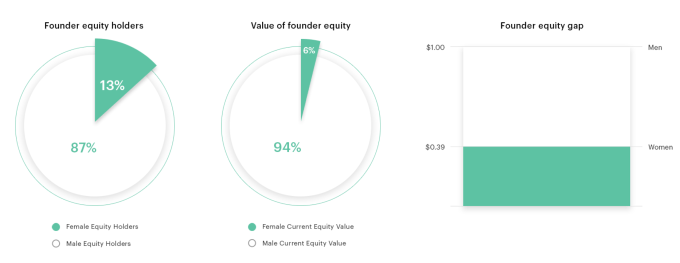Facebook’s ad platform is facing charges that it has enabled gender-based discrimination against millions of women in a class action suit filed on behalf of three female workers and backed by the American Civil Liberties Union (ACLU).
The legal action also names ten employers who are alleged to have used the social media giant’s platform to exclusively and unlawfully target job adverts at male Facebook users, thereby excluding women and non-binary users from receiving the ads.
The ACLU, law firm Outten & Golden LLP, and the Communications Workers of America have filed charges with the Equal Employment Opportunity Commission.
The 10 employers and employment agency advertisers named in the suit, which the charges allege ran discriminatory jobs in “mostly” male-dominated fields, include a police department, multiple retailers, a software development firm and various installation, repair and remodelling companies. (All ten named in the suit are listed in the ACLU’s press release.)
“I’ve heard stories about when people looked for jobs in the classified ads and big bold letters read ‘help wanted-male’ or ‘help wanted-female.’ I was shocked to find that this discrimination is still happening, just online instead of in newspapers,” said Bobbi Spees, a job-seeker and lead complainant in the case, commenting in a statement. “I shouldn’t be shut out of the chance to hear about a job opportunity just because I am a woman.”
“The internet did not erase our civil rights laws. It violates the law if an employer uses Facebook to deny job ads to women,” added Peter Romer-Friedman, an attorney at Outten & Golden, in another supporting statement. “The last time I checked, you don’t have to be a man to be a truck driver or a police officer. But Facebook and employers are acting like it’s the 1950s, before federal employment law banned sex discrimination.”
The charges allege that Facebook, via its platform, delivers job ads selectively based on age and sex categories that employers expressly choose, and that it earns revenue from placing job ads that exclude women and older workers from receiving the ads.
The ACLU notes that targeting job ads by sex is unlawful under federal, state, and local civil rights laws, including Title VII of the Civil Rights Act of 1964.
“Sex segregated job advertising has historically been used to shut women out of well-paying jobs and economic opportunities,” said Galen Sherwin, senior staff attorney at the ACLU Women’s Rights Project, in another supporting statement. “We can’t let gender-based ad targeting online give new life to a form of discrimination that should have been eradicated long ago.”
While online platforms are not as heavily regulated as publishing platforms the lawsuit argues that Facebook can be held legally responsible for:
- creating and operating the system that allows and encourages employers to select the gender and age of the people who get their job ads, including providing employers with data on users’ gender and age for targeting purposes;
- delivering the gender- and age-based ads based on employers’ preferences; and
- acting as a recruiter connecting employers with prospective employees
We’ve reached out to Facebook for comment on the lawsuit.
It’s by no means the first time the company has faced civil rights complaints related to its ad platform.
Back in 2016 ProPublica exposed how Facebook’s ad tools could be used to exclude users based on their “ethnic affinity” — including in protected categories such as housing, employment and credit opportunities which prohibit discriminatory advertising.
The company responded by saying it would build tools to prevent advertisers from applying ethnic affinity targeting in the protected categories. And also by rewording its ad policies to more clearly prohibit discrimination.
But the following year another ProPublica investigation showed it was still failing to block discriminatory ads — leaving Facebook to apologize for failing to effectively enforce its own policies (hmmm, now where else have we heard the company accused of that… ), and saying: “Our systems continue to improve but we can do better.”
Last year the company was also shown to have allowed ads that included hateful sentiments targeted at Jewish people.
Around about the same time that Facebook was facing renewed criticism over ethnic affinity targeting on its platform being used as a tool for racial discrimination, the company said it would also take a look at how advertisers are using exclusion targeting across other “sensitive segments” — such as those relating to members of the LGBTQ community and people with disabilities.
It’s not clear whether Facebook included gender-based discrimination in those 2017 self reviews too. (We’ve asked and will update this post with any response.)
Either way, it appears Facebook has failed to pick up on the potential for gender-based discrimination to be carried out via its ad platform.
And given all the attention its ad tools have attracted lately as a vector for discrimination and other types of abuse that looks careless to say the least.
Facebook’s ad platform has faced additional criticism in Europe for sensitive inferences it makes about users — given the platform allows advertisers to target people based on political and religious interests, meaning Facebook’s platform is quietly making sensitive inferences about individuals.
Privacy experts argue this modus operandi entails Facebook processing the sensitive personal data of individuals without explicitly asking people for their upfront consent (as would be required under EU law when you’re processing sensitive personal data such as political or religious affiliation).
An opinion on a person is still personal data of that person, they contend.
Facebook disagrees, disputing that the inferences its ad platform makes about users (based off of its tracking and data-mining of people) constitutes personal data. But it’s yet another bone of legal contention now being lobbed at the company.



